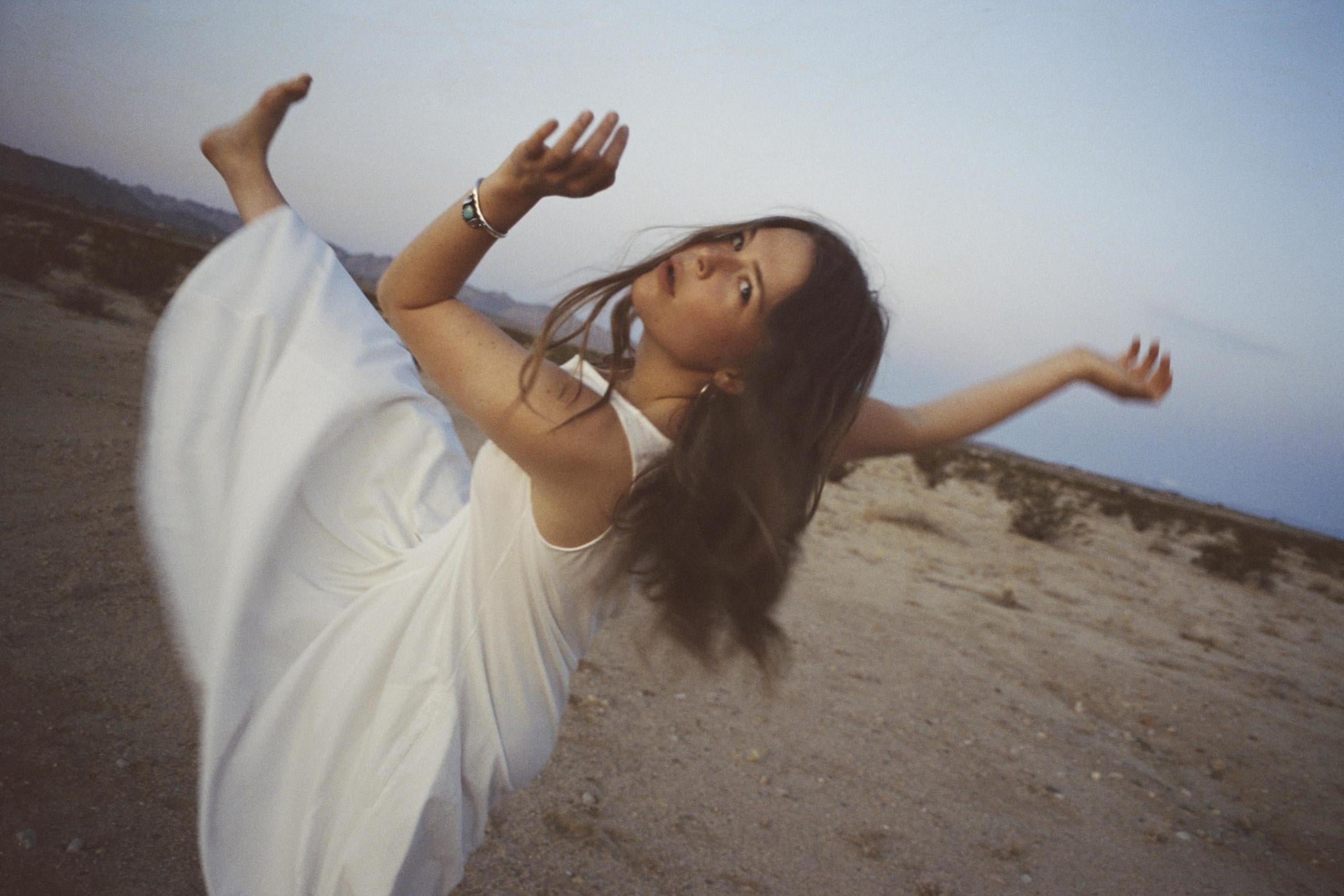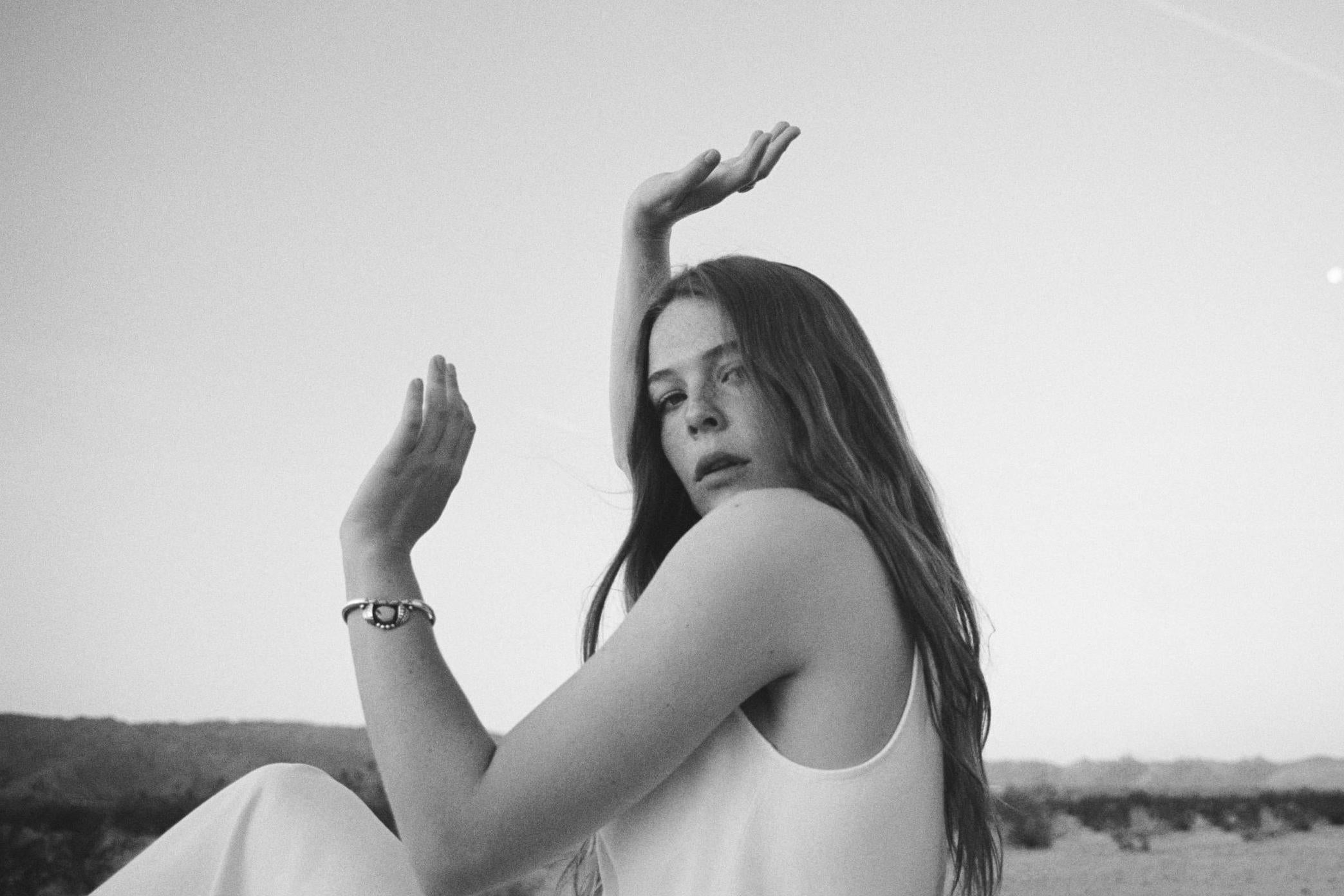Maggie Rogers: ‘I had a panic attack and ran off stage sobbing’
The singer who rose to instant fame after a clip of Pharrell Williams hearing her song ‘Alaska’ went viral says she was ‘scared and overwhelmed for a really long time’. She talks to Patrick Smith about her new album ‘Heard It in a Past Life’


Your support helps us to tell the story
From reproductive rights to climate change to Big Tech, The Independent is on the ground when the story is developing. Whether it's investigating the financials of Elon Musk's pro-Trump PAC or producing our latest documentary, 'The A Word', which shines a light on the American women fighting for reproductive rights, we know how important it is to parse out the facts from the messaging.
At such a critical moment in US history, we need reporters on the ground. Your donation allows us to keep sending journalists to speak to both sides of the story.
The Independent is trusted by Americans across the entire political spectrum. And unlike many other quality news outlets, we choose not to lock Americans out of our reporting and analysis with paywalls. We believe quality journalism should be available to everyone, paid for by those who can afford it.
Your support makes all the difference.Maggie Rogers is climbing all over my questions. The 24-year-old singer-songwriter once toyed with being a journalist, and has strong opinions about how I’m conducting our interview. Famously, her track “Alaska”, which she wrote and performed for Pharrell Williams at an NYU masterclass in 2016, made him well up. But when I ask her if she is bored of talking about this, she says framing it that way is “negative” and “annoying”. “A better way to ask that,” she suggests, “is ‘how did it feel?’”
Oh, OK, how did it feel? “First of all, the whole Pharrell and going viral thing is an essential part of my story,” she says. “It’s how most people know me. I’d be showing up in places like France and they’d be like, ‘Tell us about Pharrell’, but I realise that I haven’t really given people anything else to talk about yet. That’s why I’m so excited about this new record.”
It turns out Rogers questions my questions because she’s worried about the way the UK press want to get her to say “s***ty things”. I don’t. I’m a fan. Mixing lilting vocals with banjos, twinkling beats and syncopated clicks and taps, she makes infectious electro-folk full of heartbreak and transformation – think of her as a rave Joni Mitchell. Kiwi popstar Lorde loves her. So, too, do Mumford & Sons, whom she recently supported on tour.
Her backstory has the kind of serendipity normally reserved for Hollywood movies. Only two-and-a-half years ago, Rogers – who grew up in small-town Maryland – was still a student at NYU’s Clive Davis Institute of Recorded Music. But then Williams heard that song, which she’d written in 15 minutes, and everything changed: the clip went viral, she was signed, and an acclaimed EP and North American tour followed. Now she has a brilliant (official) debut album, Heard It in a Past life, out on Polydor this week.
It’s not been as easy as it sounds for Rogers, though. “Graduating from college and starting your life as an adult is a giant transition no matter what,” she says. “My private life became public very quickly, without me having much control over it. I was scared and overwhelmed for a really long time.”
Those feelings are keenly expressed on the record. Listen to its lead single, “Light On”. “Would you hear me out if I told you I was terrified for days?” she sings over swelling synths. “Thought I was going to break.” Or album closer “Back in My Body”, whose lyrics are similarly anguished: “I was stopped in Paris when I almost ran away.”
“The moments that song describes,” she explains, “are largely from my first European tour in February 2017. I was doing so much press. It made me miserable. I remember I was in the middle of a video session in Paris and I walked outside to have a cigarette. I thought, ‘I have enough money to buy a plane ticket and I could get to the airport before people really realised where I went.’” Although the moment passed, the impulse was real.
“Then I was playing in London,” she continues, “and I’d finished a soundcheck and someone came up to me and asked why I hadn’t played ‘Alaska’. I was like, ‘I play that all the f**king time’. And they said that the booker for Jools Holland was there and that I needed to do it. I was like, ‘Fine, I’ll play the game’. And then halfway through the song I had a crazy panic attack and ran off the stage sobbing [she still got the booking]. Folk music usually romanticises the road. ‘Back in my Body’ tells the opposite story.”
Rogers sits upright on the edge of a sofa in her record label’s offices in King’s Cross. She has the confident air of a head girl: sharp and solicitous, with a tendency to tuck her long butterscotch-blond hair self-consciously behind her ears. She speaks in neat sentences, as if to make the transcribing easier, and is so generous with her laughter that I leave happily convinced that I’m funnier than I am. Speak in platitudes or try to conceal your lack of knowledge with pseudo-intellectual guff, however, and she says she’ll “call you out on your s***. Journalists know I have a low tolerance for that.”
Enjoy unlimited access to 100 million ad-free songs and podcasts with Amazon Music
Sign up now for a 4 month free trial (3 months for non-Prime members)
Enjoy unlimited access to 100 million ad-free songs and podcasts with Amazon Music
Sign up now for a 4 month free trial (3 months for non-Prime members)
We rattle through her influences (Björk, Bon Iver, Solange, Vivaldi). Her magazine internships at ELLE and Spin. Her time spent transcribing interviews for the book Meet Me In the Bathroom, by journalist Lizzy Goodman, which captured the spirit of the New York indie scene of the early Noughties (“The job was: ‘Do you want to listen to every favourite musician you’ve ever had talk about music?’ I was like, ‘Yes, obviously’”).
But when I bring up the writer’s block she wrestled with from 2014 to 2016, she slows down and her diction becomes more fastidious, as if each syllable is under close inspection. “Writer’s block is your self-critic getting in the way because creativity will just flow otherwise,” she says. “With music, it’s not something you can just press a button and it comes out. It moves through you, but you have to give it space. It’s interesting because all I want to do is make music. I want to sit in my room, play the guitar, make beats, sing... And I have never made less music than when being a musician became my job.”
Although Rogers wasn’t raised in a family of musicians – her mother worked as an end-of-life companion; her father ran a car dealership – she was encouraged to learn the harp at the age of seven, and later added singing, guitar, bass, piano, drums and the banjo to her repertoire. While still at boarding school in Delaware, aged 17, she took a summer course at Boston’s highly respected Berklee College of Music, where she won a songwriting contest. In the next couple of years she self-released two folk solo albums – The Echo and Blood Ballet – before a trip to Berlin persuaded her to start distilling elements of dance music into her rustic vignettes of twentysomething life.

For Rogers, it’s important to write songs that reflect the world around her. Take “Hashtag”, in which she sings of being “drenched in rage” the day Donald Trump was elected US President and of “global grief” hanging “as heavy as summer heat”. “My country is really divided right now,” she says, “and I think I spend a lot of time feeling really helpless about it. There’s a lot of people yelling at each other – about gun violence, for example – and I don’t know how to actually achieve real change.”
Speaking of change, progress has been made in some areas of the music industry, albeit tentatively. This year’s set of Brit Award nominations is largely female-skewed, for example, with more women than men up for awards in the Best Single, Video, Breakthrough and Album categories. Meanwhile, initiatives such as the PRS Foundation’s Keychange have promised to achieve a 50/50 gender split on festival lineups by 2022.
Rogers is heartened by such pledges, but can’t wait for them to be redundant. “I don’t want to be a woman in music,” she says. “I just want to be a musician. I don’t want my gender to be my genre. Hopefully, ideally one day we can achieve some sense of equality or gender balance on a festival lineup. But after that happens, I want to be a headliner because I worked really hard to make great music, but I don’t want to be a headliner because you have a quota to fill.”
Two months later, I meet Rogers again. It’s at a hotel in Greenwich, the morning after her first show at London’s O2 Arena, supporting Mumford & Sons. The previous night, Marcus Mumford paid tribute to Rogers onstage, saying “now that’s a woman who has her s*** together”. “Wow, that’s generous,” says Rogers, dressed in a white T-shirt and pale jeans. “Generous I think is the best word I could say about it. I certainly don’t feel like I have my s*** together.”
While she was pleased with the performance, it’s true that the nuances of, say, “Alaska” were drowned out in the cavernous setting. “I find in those bigger spaces,” she says, “fast intricate rhythms don’t translate as much. It’s this weird thing that’s happening because of streaming. Giant pop and rock acts used to be the only people that could play arenas because they had the radio. Now that the radio isn’t necessary, you’re seeing artists with giant niche followings are able to play arenas. They’re not really built for that kind of music... I don’t know if I want to play arenas, I find it hard to connect.”
Rogers tells me she’s thought a lot about our last conversation, and seems more relaxed this time around. My questions don’t seem to require the same laser-guided precision. “I don’t make music because I need this kind of feedback loop from journalists,” she explains. “Like, I make music because I need it to breathe. It’s just who I am as a person.” She considers her own words, then adds: “Pull quote!”
Heard It in a Past Life, the new album by Maggie Rogers, is released on Friday 18 January
Join our commenting forum
Join thought-provoking conversations, follow other Independent readers and see their replies
Comments